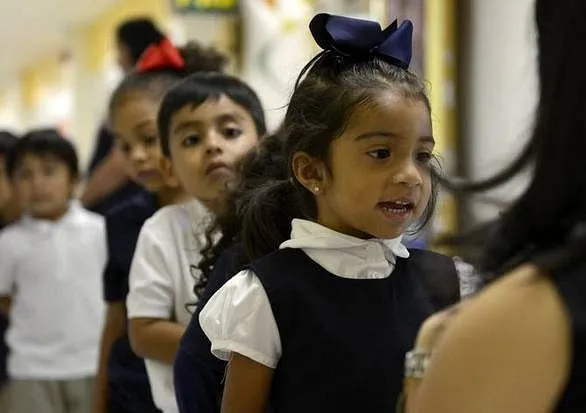Srinagar: The Centre is mulling to integrate the vocational education with general academic education in all secondary and senior secondary schools for the students.
The move is aimed at enhancing the employability and entrepreneurial abilities of the students and providing them exposure to the work environment.
An official document said that the Department of School Education and Literacy (DSEL), Government of India (GoI), under the revised Samagra Shiksha would focus on generating awareness among the students about various career options to enable them to make a choice in accordance with their aptitude, competence and aspirations.
The DSEL has extended Samagra Shiksha for a period of five years in line with the newly-launched National Education Policy (NEP)-2020 which has broadened the scale and scope of implementation of the scheme all over India.
“Vocational education will be introduced as an integral part of general education at secondary and senior secondary levels and the vocational subjects will be introduced as an additional or mandatory subject at the secondary level and as compulsory (elective) at the senior secondary level,” the official document reads.
Under the programme, there would be a provision for arranging hands-on training for students in industrial set up and guest lecturers from the industry, lTls and artisans besides giving on-job training during vocations for at least 80 hours in a job role. “One-time non-recurring grant for purchase of tools and equipment will be approved at the time of introduction of the new job roles for the students in the schools,” the document reads.
To implement the policy, the states and union territories have to follow the assessment timeline in classes 10th and 11th while the practical assessment may be done by interchanging the teachers amongst different schools for the purpose of assessment.
“The assessment and certification cost of Rs 600 per student will be approved for students per class in classes 10th and 12th,” it reads.
The scheme would cover the government and government-aided schools. The Union Ministry of Skill Development has already notified certain common norms for all skill development schemes.
However, these norms would not be applicable to the vocationalisation component which seeks to integrate vocational education with general curriculum in schools.
“Funding and placement-related norms are not applicable to school education as the objective of DSEL is to enhance employability and reduce drop-outs and not only employment,” the document reads.
The DSEL has said that vocational education would be integrated in all secondary schools in a phased manner over the next decade.
“Skill laboratories will also be set up and created in the schools so that the students can avail the facilities while pursuing the course,” it reads.
To make the new intervention functional, the DSEL has decided to provide a financial support of Rs 5 lakh as non-recurring grants to schools for the purchase of tools and equipment besides furniture and computers.
“Additional funds up to Rs 2.5 lakh for additional may be also provided to schools which will depend on the enrollment in the schools,” the document said.
The intervention has been made in the Samagra Shiksha to assess the performance indicators such as the access of students to the schools and the retention rate of the students in the schools at secondary and higher secondary level.
“The government will also assess the ratio of the number of schools offering vocational courses in secondary and senior secondary classes to the total number of schools having secondary and senior secondary classes,” the document reads.
The government would also assess the ratio of the number of students enrolled in the vocational courses to the total number of students in secondary and senior secondary classes.







